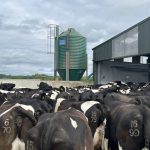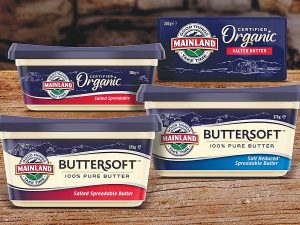
Dairy Companies Association of New Zealand (DCANZ) executive director Kimberly Crewther said that while the Our Land and Water National Science Challenge report concerned itself with alternative proteins, the value of dairy as part of a sustainable food system extended beyond protein.
“Milk is a nutritional powerhouse, making a disproportionately high contribution to a range of nutrients.
“The 7% of global calories supplied by milk not only contributes 12% of global protein, but also accounts for supply of 49% of food calcium, 24% of vitamin B2, 18% of lysine, and more than 10% of a further five essential amino acids, vitamins A, B5 and B12, phosphorous and potassium.
“Overall milk is a top five source of supply for 23 out of 29 essential nutrients within the global food system.”
Crewther said characterisation of New Zealand dairy products as protein ingredients that are easily substituted was overly simplified.
“The high degree of nutritional completeness of milk underpins the ongoing global demand growth for dairy, which is forecast to remain strong, with countries including China and Indonesia having adopted targets to increase milk and dairy product consumption as part of healthy diets for their populations.”
Crewther noted that one of the four scenarios suggested emerging proteins would contribute towards increased demand without significantly affected traditional proteins.
“DCANZ believes this is the most likely scenario and that dairy products will continue to play an important role in sustainable food systems and make a significant contribution to the New Zealand economy.”
DCANZ also agreed with the caution expressed in the report around highly positive growth of alternative proteins. “This is on the basis that the commercial viability of these products is not yet established, nor is their potential to exceed the contribution that dairy makes to sustainable diets.”
Crewther said a published joint study by Fonterra and VTT (the Technical Research Centre of Finland) showed that, contrary to claims by some start-ups, the carbon and water footprints of protein from precision fermentation were not considerably lower than protein extracted from milk, and in fact could be higher. Suggestions of a GHG reduction if New Zealand dairy is replaced by plant-based protein were also overly simplified when the full nutritional contribution of a milk across all nutrients for a healthy diet was considered.
Crewther agreed that there was a “significant breadth” of potential future scenarios.
You can now read the most important #news on #eDairyNews #Whatsapp channels!!!
🇺🇸 eDairy News INGLÊS: https://whatsapp.com/channel/0029VaKsjzGDTkJyIN6hcP1K

























